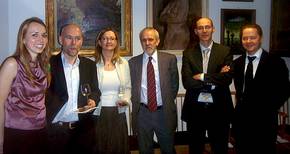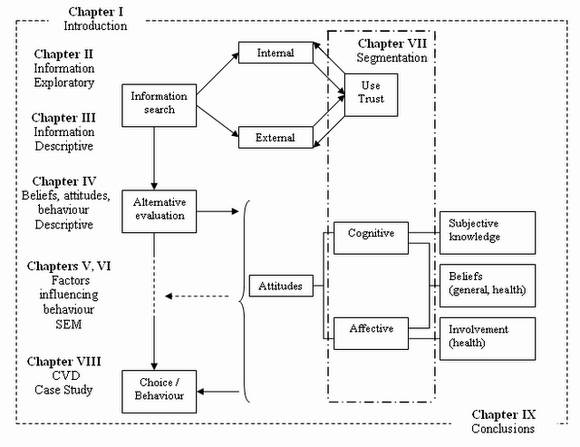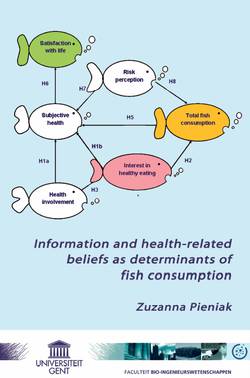|
|
|
Improving the understanding of determinants of European consumers' seafood consumption is one of the major goals in the SEAFOODplus projects 2.1 CONSUMERSURVEY and 2.3 SEA-INFOCOM. The research described in the present SAN concerns Zuzanna Pieniak’s PhD. The thesis was recently presented and successfully defended at Ghent University. The thesis consists of several papers published in highly qualified scientific journals.
Authors: Zuzanna Pieniak and Wim Verbeke, Ghent University, Belgium
Owing to its evident benefits on human health on one hand, and also because of some potential harmful effects on the other hand, fish has been widely communicated to consumers. The public is sometimes faced with seemingly conflicting news/messages about the benefits and risks from eating fish, resulting potentially in some controversy and confusion over the role of fish consumption in a healthy diet, at least in consumers’ perception. This doctoral research has been performed within the Project 2.3 SEA-INFOCOM.
Zuzanna Pieniak, who has been a PhD researcher at Ghent University, Belgium (Project 2.3) from the onset of the SEAFOODplus project, has successfully defended her PhD on the 29th of February 2008. The thesis investigated determinants of seafood consumption among European consumers, with an emphasis on the impact of information and health-related beliefs on fish consumption behaviour.
 - Zuzanna Pieniak with her promoters and jury members: (from left) Prof. S.O. Olsen, Prof. K. Brunsø, Prof. R. Shepherd, Prof. W. Verbeke and Prof. J. Scholderer
Prof. Wim Verbeke from Ghent University, Belgium (Project 2.3 SEA-INFOCOM leader) and Prof. Karen Brunsø from the MAPP, University of Aarhus in Denmark (RTD Pillar 2 coordinator and project 2.1 CONSUMERSURVEY leader) were her supervisors. The committee consisted of Prof. Richard Shepherd from University of Surrey, UK (member of the External Advisory Board for Pillar 2), Prof. Joachim Scholderer from the MAPP, University of Aarhus, Denmark (involved in Projects 2.1 and 2.3); Prof. Svein Ottar Olsen from University of Tromsø and Norwegian College of Fishery and Aquaculture Research, Norway (Project 2.4 CONSUMEREVALUATE leader); Prof Patrick Van Kenhove (UGent Professor in Marketing), Prof Patrick Sorgeloos (UGent Professor in Aquaculture), and Prof. John Van Camp (UGent Professor in Human Nutrition).
The overall objective of the research was to improve the understanding of information and health-related beliefs as determinants of European consumers’ fish consumption. Important levels of analysis were cross-cultural variations in Europe, consumers’ needs for fish information, attitudes and preferences in relation to fish, and the link of these aspects to perceived health, well-being and involvement with health from a consumer point of view. This PhD thesis is structured using a conceptual framework based on three stages of the classical consumer decision-making process: information search, evaluation of alternatives and behaviour itself (see Figure 1) Both qualitative exploratory (focus group discussions) and quantitative conclusive (pan-European consumer survey) studies were conducted, with secondary and primary data input (see also Scientific Alert Note 1 and SAN 2 from Project 2.3).
 - Figure 1. Thesis structure related to the conceptual framework
The study provided cross-culturally validated measures of use of and trust in information sources, use of and interest in information cues, knowledge, behaviour, health beliefs, health involvement and risk perception in relation to fish across consumer samples taken from Belgium, the Netherlands, Spain, Denmark and Poland.
Fish was strongly perceived as a healthy and nutritious food by consumers. Furthermore, fish was considered as a safe product to consume and people did not perceive high risk of food poisoning from eating fish. Nevertheless, higher risk perception related to fish was found to weakly but significantly negatively influence fish consumption.
A wide diversity in consumer’s use of and trust in different sources of information related to fish was found. Personal sources were the most frequently actively used and, together with health-related sources, the most trusted information sources by consumers. Women and higher educated consumers used most of the information sources more frequently as compared to men and lower educated consumers.
A high use of on-label information cues was reported. Seafood labels were found to have considerable potential as market effective sources of information. Consumers were most familiar with basic, mandatory information cues, such as expiry date, price, species name and weight; and they felt able to derive clear quality expectations from the information these cues convey. Consumers also displayed a very strong interest in safety guarantee and a quality mark for seafood.

Consumers’ health-related beliefs were found to be important factors influencing fish consumption. Health involvement, interest in healthy eating and the belief that eating fish is healthy positively influenced fish consumption frequency. This result entails opportunities for public health authorities in creating more effective communication – with specific reference to the potential health benefits from consuming fish – with respect to fish consumption.
The importance of subjective knowledge as a determinant of fish consumption was emphasised. Improving consumers’ subjective knowledge is more likely to cause an increase in their fish consumption as compared to strategies aiming at increasing consumers’ objective or factual knowledge about fish.
Finally, three distinct clusters based on use of and trust in fish information sources were identified: Sceptic (24.0%), Enthusiast (41.4%) and Confident (34.6%). In order to be efficient and effective, marketers (and health practitioners) were recommended to deliver tailored marketing and communication strategies, including the provision of specific fish information to each of the identified consumer segments (see also Scientific Alert Note 3 from Project 2.3).
The thesis of Zuzanna Pieniak is entitled ‘Information and health-related beliefs as determinants of fish consumption’ and can be ordered as a pdf file from the author ( zuzanna.pieniak(at)ugent.be). The thesis is compiled from several scientific journal papers and has been published as a monograph with ISBN 978-90-5989-227-9. For future referencing and citation, readers are asked to refer primarily to the original journal papers. zuzanna.pieniak(at)ugent.be). The thesis is compiled from several scientific journal papers and has been published as a monograph with ISBN 978-90-5989-227-9. For future referencing and citation, readers are asked to refer primarily to the original journal papers.
|
|
|
|